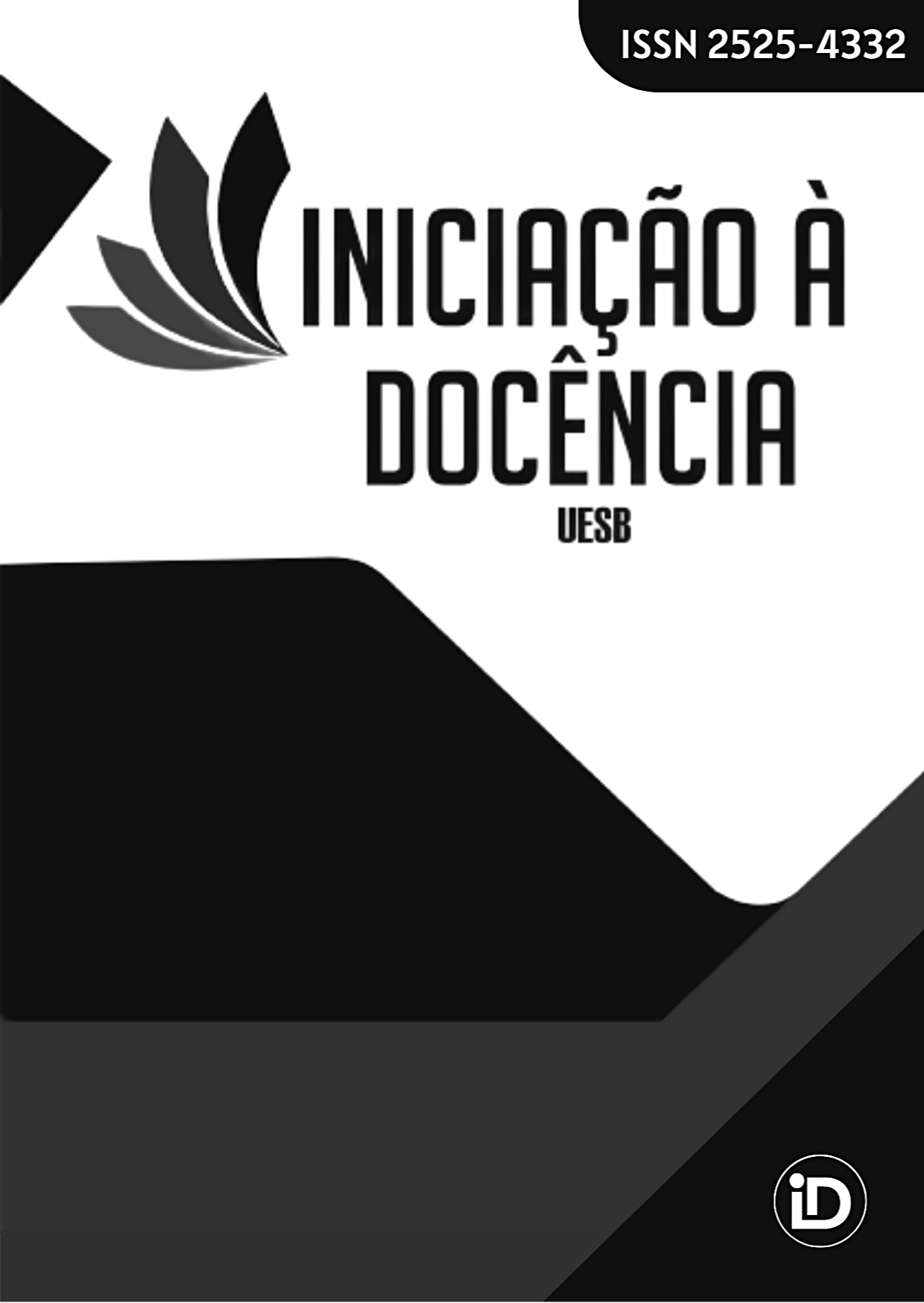Graduates of Pibid-mathematics: self-evaluation of the first experience of initiation into teaching
DOI:
https://doi.org/10.22481/riduesb.v7i2.10936Keywords:
Pibid- Mathematics, Initial training, Self-evaluation, Remote TeachingAbstract
The objective of this article is to analyse the process of self-evaluation of undergraduates who are members of the Institutional Program for Scholarship Initiation to Teaching of Mathematics on the first experience of initiation to teaching in Basic Education. The methodological contributions are linked to descriptive research with a qualitative approach. The participants in the research were five undergraduates of the Mathematics Course of Campus IV of the Federal University of Paraíba, who are members of Pibid-Mathematics and work at the Escola Cidadã Integral Senador Rui Carneiro (Mamanguape-PB). The data were collected using an online questionnaire was divided into three categories of analysis: the actions carried out involving the pedagogical workshop; teaching knowledge in the training of the teacher who teaches mathematics; and the narratives regarding the first experience of initiation into teaching and the importance of self-evaluation in pedagogical practice. The results revealed a positive sign in the first class of the graduates, perception and levelled attribution of importance on the knowledge needed for teaching, classification of didactic-pedagogical elements of major concern involved in the experience, and the possibility of giving new meaning to self-assessment, conceiving it as an instrument of regulation in and from initial training.
Downloads
References
BARDIN, L. Análise de conteúdo. São Paulo: Edições 70, 2011.
BIBIANO, B. Autoavaliação: como ajudar seus alunos nesse processo. Revista Nova Escola. Março, 2010.
BOGDAN, R.; BIKLEN, S. Investigação Qualitativa em Educação: uma introdução à teoria e aos métodos. Trad. Maria Alvarez, Sara do Santos e Telmo Baptista. Porto, Portugal: Porto Editora, 1994.
BRASIL. Ministério da Educação. Base Nacional Comum Curricular (BNCC). Brasília: MEC/SEB, 2017. Disponível em: <http://basenacionalcomum.mec.gov.br/images/historico/BNCC_EnsinoMedio_embaixa_site_110518.pdf>. Acesso em: 06 fev. 2020.
COSTA, M. A. F.; COSTA, M. F. B. Projeto de pesquisa: entenda e faça. 3. ed. Petrópolis, RJ: Vozes, 2012.
FREIRE, P. A educação na cidade. São Paulo: Cortez, 1991.
FREIRE, P. Pedagogia da autonomia: saberes necessários à prática educativa. 34. ed. São Paulo: Paz e Terra, 2006.
GIL, A. C. Gestão de pessoas. São Paulo: Atlas, 2001.
LIMA, F. J.; GONÇALVES, B. M. V. Formação docente e (re) elaboração do ensino de Matemática no âmbito do Pibid: o uso de jogos como estratégia metodológica. Olhares: Revista do Departamento de Educação da Unifesp, v. 8, n. 3, p. 147-161, 2020.
MARINS, A. S.; TEIXEIRA, B. R.; SAVIOLI, A. M. P. D. Práticas de Ensino Exploratório de Matemática e a Mobilização/Desenvolvimento do Conhecimento Matemático para o Ensino por Participantes do Pibid. Bolema: Boletim de Educação Matemática [online]. 2021, v. 35, n. 69, pp. 314-342. Disponível em: https://www.scielo.br/j/bolema/a/MxLx6sx4zqtjrGSdyr9nmmL/?format=html&lang=pt# Acesso em: 02 jun. 2022.
MENDES, I. A. Tendências metodológicas no ensino de matemática. Belém: Ed. UFPA, 2008.
PARAÍBA. Secretaria de Estado da Educação e da Ciência e Tecnologia (SEECT). Plano Estratégico Curricular (PEC). Ensino Médio Integral. 4º Bimestre. João Pessoa, 2020.
RÉGNIER, J. C. Autoavaliação na prática pedagógica. Revista Diálogo Educacional, v.3, n.6, p. 53-68, 2002.
SOUZA, N. C. A. T. Influências do Pibid no conceito e na efetividade da qualidade em educação. Revista de Iniciação à Docência, v. 6, n. 2, p. 106-118, 2021.
TARDIF, M. Saberes docentes e formação profissional. Petrópolis: Vozes, 2002.
VIERO, V. L.; MARIANI, R. C. P. Iniciação à docência na formação inicial: algumas experiências do Pibid matemática/UFSM (2014-2018). Revista Eletrônica de Educação Matemática, Dossiê Temático: Pesquisas em Formação de Professores que Ensinam Matemática, p. 1-22, 2022. Disponível em: https://periodicos.ufsc.br/index.php/revemat/article/view/82560 Acesso em: 01 jun. 2022.
Downloads
Published
How to Cite
Issue
Section
License
Copyright (c) 2022 Revista de Iniciação à Docência

This work is licensed under a Creative Commons Attribution 4.0 International License.






